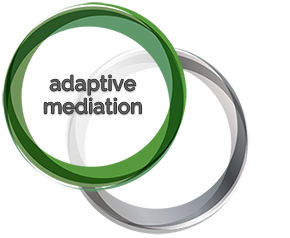
We spend a lot of our valuable time at work. When it is going well, we are productive and feel motivated. But when there is conflict in the workplace, we can feel stressed and unsure about what to do.
Workplace conflict comes in many forms
Some common examples include:
- interpersonal conflict between staff members;
- harassment and bullying – downwards from managers and supervisors, and upwards from staff to their managers;
- communication style – some people are more aggressive, others more passive;
- communication breakdown – when niggles remain unresolved and grow;
- performance issues;
- roles and responsibilities, and accountability for work performed and decisions made; and
- workplace structures and/or workflow problems.
People are complicated and show signs of distress in different ways. Some are obvious – such as aggression or an argumentative attitude – which are difficult to ignore. Other behaviours can be more subtle – increased time off, loss of motivation or productivity, or just behaving differently or unusually compared with previously. No matter the organisation size, it’s important to notice and address the signs, however, they are expressed, and have a dispute resolution process in place.
When workplace conflict remains unresolved, there can be a significant impact on employee behaviour and productivity. In more serious matters, damage to an organisation’s brand and reputation can occur.
What can you do about workplace conflict?
Whether we experience conflict at work as an employee or are faced with dealing with a dispute that has arisen between others, there is a series of steps to take. The first is to identify what the issue is actually about. Not everyone will agree about things that happen or how things should happen in the workplace. Often small issues arise which, if left unresolved, create bigger or longstanding problems. If recognised early, issues can be dealt with quickly.
An informal discussion is sometimes all that is needed to resolve a workplace dispute. But this can be more challenging than it sounds. People can find it difficult to express and discuss issues at work. Employees can be concerned about how they might be viewed if they raise an issue or make a complaint, and employers often wish the staff could just get on with the job. But it is necessary to try. The goal is to eliminate conflict and stress, to create a more positive and coherent atmosphere.
If you are feeling uncomfortable or unsure about what to do, check whether any workplace conflict policies or procedures exist. These should set out a step by step to guide to help you navigate the dispute resolution process. If you’re not sure where to look or what to do, it’s a good idea to speak to someone in Human Resources (HR) or your immediate supervisor. If either of these people is the person with whom you are experiencing the conflict, try and find another person in your team to support you to have that initial conversation.
The next step is to arrange or request a confidential discussion with the person or with someone who can assist you in accordance with workplace policy. HR are trained to assist with workplace conflict and can explain the specific steps you need to take. It is important for each person to have the opportunity to have their side of the story heard. If the issue is serious or warrants further exploration, an investigation may take place.
Why should you take steps to resolve workplace conflict?
It is also important to understand that not doing anything is not the right choice. This applies to employees and employers. Sometimes, issues can’t be sorted out without some assistance, whether that means via in-house support or with external specialists. We all have obligations to protect ourselves and our staff, to ensure that everyone feels safe and productive at work. Employers need to recognise their duty to manage workplace conflict, and employees should feel obliged (not concerned) to bring issues to their employer’s attention.
How can mediation help workplace conflict?
If you have tried but are unable to resolve the dispute, mediation can assist you or your business in a cost and time-efficient way. Mediation can be an effective tool to ensure you meet your obligations to your staff and allows employees to feel heard in a safe environment. The process helps to identify and explore the cause of the issues creating conflict and work towards a plan for the future. Mediators are expert listeners and can independently facilitate the conversations that need to be had. The parties are gently guided through a flexible but structured process of dispute resolution. The communication between the parties is managed so they each feel heard and supported while openly discussing the problem. Once the mediator helps the parties accept their respective positions, work on devising options for negotiation can begin. The purpose of the mediation process is to assist and support the parties to find solutions to their issues, together. No decisions are made for the parties.
Workplace Mediation Benefits
There are many benefits of workplace mediation, including:
- confidentiality;
- speed of resolution;
- cost-effectiveness;
- enhanced communication, better-shared understanding, improved collaboration, better interpersonal relationships,
- reduction in the impact on the organisation – and when you outsource dispute resolution, you can on your business instead.
- Improved workplace culture.
In conclusion
Mediation can be arranged quickly and tailored to suit the circumstances and people involved. It is not a formal or intimidating process and costs significantly less than more traditional legal pathways. The most important factor is empowerment – the parties work together and completely control the outcome. The process focuses on interests and needs, and the future of the employment relationship. This benefits the staff involved and the business itself.
Get in touch with Adaptive Mediation today to discuss your workplace mediation needs. Servicing Wollongong and greater Sydney areas, we are here to help.

0 Comments